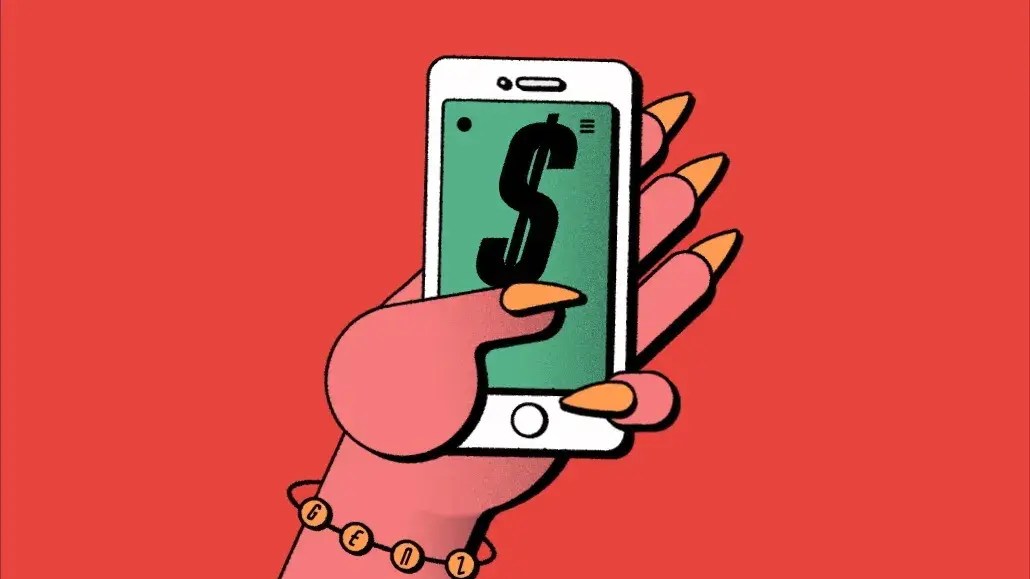Stop texting—but these apps need to change as well. Republished on December 10 with new reports into an encrypted messaging surge after Korea’s introduction of martial law, and its stark warning for U.S. Last week, the FBI warned iPhone and Android users to stop texting and to use an encrypted messaging platform instead. The news made global headlines, with cyber experts urging smartphone users to switch to fully secured platforms—WhatsApp, Signal, Facebook Messenger. But the FBI also has a serious security warning for U.S. citizens using encrypted platforms—those apps, it says, need to change. While China has denied any involvement in the ongoing cyberattacks on U.S. telco networks, describing this as “a pretext to smear China,” government agencies are clear that Salt Typhoon hackers linked to China’s Ministry of State Security, have infiltrated multiple networks, putting both metadata and actual content at risk. Encrypting content is certainly the answer, and the FBI’s advice to citizens seemed clear-cut, “use a cell phone that automatically receives timely operating system updates, responsibly managed encryption and phishing resistant MFA for email, social media and collaboration tool accounts.” What was missed in almost all the reports covering Salt Typhoon was the FBI’s precise warning. “Responsibly managed” encryption is a game-changer. None of the messaging platforms which cyber experts and the media urged SMS/RCS users to switch to are “responsibly managed” under this definition. The FBI has now expanded on its warning last week, telling me that “law enforcement supports strong, responsibly managed encryption. This encryption should be designed to protect people’s privacy and also managed so U.S. tech companies can provide readable content in response to a lawful court order.” There are just three providers of end-to-end encrypted messaging that matter. Apple, Google and Meta—albeit Signal provides a smaller platform favored by security experts. These are the “U.S. tech companies” the FBI says should change platforms and policy to “provide readable content in response to a lawful court order.” This doesn’t mean giving the FBI or other agencies a direct line into content, it means Meta, Apple and Google should have the means, the keys to provide content when warranted to do so by a court. Right now they cannot, Police chiefs and other agencies describe this situation as “going dark” and they want it to change. The onus for forcing this change will fall to public opinion, to users. FBI Director Christopher Wray warns that “the public should not have to choose between safe data and safe communities. We should be able to have both—and we can have both… Collecting the stuff—the evidence—is getting harder, because so much of that evidence now lives in the digital realm. Terrorists, hackers, child predators, and more are taking advantage of end-to-end encryption to conceal their communications and illegal activities from us.” This is a dilemma. Apple, Google and Meta all make a virtue of their own lack of access to user content. Apple, by way of example, assures that “end-to-end encrypted data can be decrypted only on your trusted devices where you're signed in to your Apple Account. No one else can access your end-to-end encrypted data—not even Apple—and this data remains secure even in the case of a data breach in the cloud.” “Unfortunately,” Wray said, “this means that even when we have rock-solid legal process—a warrant issued by a judge, based on probable cause—the FBI and our partners often can’t obtain digital evidence, which makes it even harder for us to stop the bad guys… the reality is we have an entirely unfettered space that’s completely beyond fully lawful access—a place where child predators, terrorists, and spies can conceal their communications and operate with impunity—and we’ve got to find a way to deal with that problem.” The dilemma is that if Google or Meta or even Apple does have the keys, as used to be the case, then the end-to-end encryption enclave falls away. How would users feel if Google could access their currently encrypted content if required/wanted. This is as much about distrust of big tech as trust or otherwise of law enforcement. And, as ever, while the argument runs one way in the U.S. and Europe, the same technical back doors would exist in the Middle East, Africa, China, Russia, South East Asia, countries with a different view on privacy and state monitoring activities. The FBI has essentially already warned users away from messaging on Google’s and Apple’s own platforms—full encryption doesn’t work cross-platform. That leaves Meta as the world’s leading provider of cross-platform, encrypted messaging, with WhatsApp and Facebook Messenger each counting their user bases in the billions. In response to last week’s FBI’s warning and its push for “responsibly managed” encryption, Meta told me that “the level best way to protect and secure people's communications is end-to-end encryption. This recent attack makes that point incredibly clear and we will continue to provide this technology to people who rely on WhatsApp.” Signal hasn’t yet provided a response. What is clear, though, is there is still no appetite across big tech to make any such changes. And they’ve proven willing to fight to protect encryption even if it means exiting countries or even regions. But the U.S. is different—and for this tech the U.S. is home. This debate will change if—and only if public attitudes change. The politics are fraught with risk without a shift in public sentiment, and there is no sign yet of that change. Users want security and privacy. End-to-end encryption has become table stakes for iPhone and Android, it is expanding—as we saw with Facebook Messenger’s recent update—not retracting. Deputy U.S Attorney General Rod Rosenstein first pushed “responsible encryption” in 2017, under the first Trump presidency. “Encryption is a foundational element of data security and authentication,” he said. “Essential to the growth and flourishing of the digital economy, and we in law enforcement have no desire to undermine it.” But Rosenstein warned that “the advent of ‘warrant-proof’ encryption is a serious problem… The law recognizes that legitimate law enforcement needs can outweigh personal privacy concerns. Our society has never had a system where evidence of criminal wrongdoing was totally impervious to detection… But that is the world that technology companies are creating.” In response, EFF said Rosenstein’s “’Responsible Encryption’ demand is bad and he should feel bad… DOJ has said that they want to have an ‘adult conversation’ about encryption. This is not it. The DOJ needs to understand that secure end-to-end encryption is a responsible security measure that helps protect people.” The argument against “responsible encryption” is simple. Content is either secure or it’s not. “A backdoor for anybody is a backdoor for everybody.” If someone else has a key to your content, regardless of the policies protecting its use, your content is at risk. That’s why the security community feels so strongly about this—it’s seen as black and white, as binary. Seven years later and the debate has not changed. And in the U.S. and Europe and elsewhere, 2025 looks like the year it ignites all over again. While the FBI has urged citizens to use encrypted messaging, not all encrypted messaging is the same. That’s the other twist we have seen this year, the reality versus the optics when it comes to user security and privacy. Now that twist is making headlines all over again—with just perfect timing. The Korea Times has just reported that “Telegram installation [has] surged in Korea on fears of state censorship under martial law… New installations of global messaging app Telegram have spiked in Korea, data showed Tuesday, as concerns brewed over possible media censorship following the martial law fiasco.” Telegram is the oddity amongst the world’s leading “secure” messengers, in that it’s not actually as secure as it has always made out. Unlike WhatsApp or Signal or Facebook Messenger—or iMessage and Google Messages within their respective walled gardens, Telegram does not end-to-end encrypt content by default. But Telegram has always come across as a secure alternative to those other mainstream platforms, which is a neat example of the power of marketing. “The number of new Telegram installations came to 40,576 cases last Tuesday,” The Korea Times said, citing IGAWorksthe data from “the day President Yoon Suk Yeol declared martial law, only to have it reversed by the National Assembly within hours. The tally was more than fourfold of 9,016 new installations posted the previous day.” Telegram’s security vulnerabilities came to a head this year, when its billionaire CEO Pavel Durov was arrested in France and then u-turned on collaboration with the authorities, something Telegram had said it would never do. The platform started to hand over user data and introduce content monitoring. Ironically, it’s only Telegram’s security weaknesses and lack of end-to-end encryption that enables such monitoring. “Over the last few weeks,” Durov posted to his own channel at the time, “a dedicated team of moderators, leveraging AI, has made Telegram Search much safer. All the problematic content we identified in Search is no longer accessible… To further deter criminals from abusing Telegram Search, we have updated our Terms of Service and Privacy Policy, ensuring they are consistent across the world. We’ve made it clear that the IP addresses and phone numbers of those who violate our rules can be disclosed to relevant authorities in response to valid legal requests.” This is a far cry from The Financial Times description of the platform before Durov’s arrest. “Durov has sought to cast the platform as a privacy-orientated alternative to Big Tech platforms, one that is unassailable from government interference. It is, he insists, a censorship-resistant safe haven for citizens living in repressive regimes, such as Belarus, Iran and Hong Kong.” Notwithstanding that change in policy, “Telegram was the most downloaded mobile messenger in [Korea] from Tuesday to Friday last week,” according to The Korea Times, suggesting its reputation has survived. “Last month, Telegram ranked fourth on the list of newly downloaded mobile messengers here, while Line, a messenger developed by Korean internet portal operator Naver was at the top spot. Many internet users had expressed concerns over the possible shutdown of domestic messaging apps, such as KakaoTalk, or censorship on such platforms under martial law, saying they have downloaded Telegram as an alternative.” While Telegram is not fully encrypted by default, the other irony is that it’s actually now more in line with the FBI’s push for “responsibly managed encryption” than its bête noire reputation might suggest. Unlike its blue chip competitors—WhatsApp, iMessage, Signal, Telegram can provide data to law enforcement when required, there is no technical impediment that would stop it doing to. That said, a platform that The FT described as “social media giant or the new dark web” is probably not one the FBI or any other law enforcement agency will ever hold up as an example of what good looks like.
2024-12-10 06:54:05
FBI Warns iPhone, Android Users—Change WhatsApp, Facebook Messenger, Signal Apps
| Name | |
|---|---|
| Publisher | |
| Genre | games news |
| Version | |
| Update | ديسمبر 10, 2024 |
| Get it On |

|







































